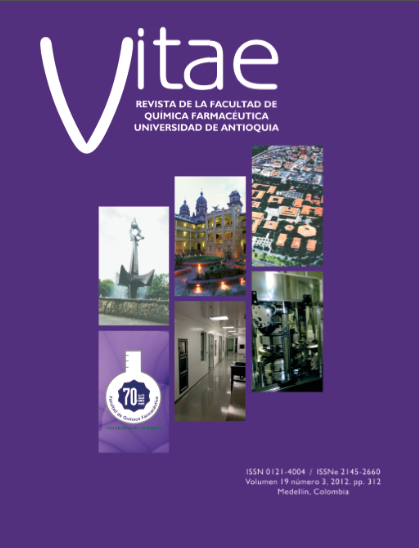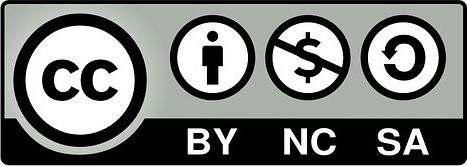PSYCHOSOCIAL FACTORS IN THE PHARMACEUTICAL CARE OF PEOPLE WITH EPILEPSY AT COLOMBIA
DOI:
https://doi.org/10.17533/udea.vitae.11006Keywords:
Anticonvulsants, Colombia, epilepsy, Pharmaceutical Care, psychosocial aspects.Abstract
Background: It has been suggested elsewhere that psychosocial factors could have a negative impact on the outcomes of pharmacotherapy of patients with epilepsy. The inclusion of relevant psychosocial factors in Colombiaís context in the pharmaceutical careís methodology would optimize the detection of drug related problems and its solution by the pharmacists, thus improving pharmacotherapy outcomes. Objectives: To explore psychosocial and cultural factors that could be incorporated in the pharmaceutical care of people with epilepsy, and design a survey in order to do so. Methods: The psychosocial factors to be included were first identified using the Delphi method, and were later incorporated in the Colombia-adjusted Daderís pharmaceutical care methodology through a knowledge, attitudes and practices survey. Pilot test was carried out with 21 patients and then the survey was adjusted as necessary. The adjusted survey was applied to 70 epilepsy patients being treated in a specialized institution at Cartagena (Colombia), aged between 15 and 60 years, with at least one month of pharmacological treatment, and without a history of previous epilepsy related surgery. Univariate statistical analysis and Multiple Correspondence Analysis was applied. Results: In the pilot analysis, recurrent needs of knowledge about epilepsy and anticonvulsant treatment were found, and brochures were designed to support educational interventions. The patient's knowledge level about epilepsy and its treatment was acceptable. Correlation between subsidized health insurance and drugs access problems, along with a possible correspondence between stigma feelings and high frequency crisis were found. Conclusions: The survey allowed to explore psychosocial and cultural factors in the framework of pharmaceutical care of people with epilepsy, the detection of drug related problems and to intervene to solve them. These findings are a first approach to the description of psychosocial factors affecting the performance of pharmacological therapy, especially the dynamic of social networks, emotional problems, the maximum educational level and knowledge about epilepsy.
Downloads
Downloads
Additional Files
Published
How to Cite
Issue
Section
License
Copyright Notice and Open Access Statement
The Journal Vitae works under the Open Access license, and the published manuscripts remain available for the public, both on the Journal's website and in databases, under the Creative Commons license, "Noncommercial Attribution" and "Share alike" systems, adopted in Colombia. Hence, when the authors agree to publish in the Journal Vitae, they will not have the right to economic retributions on publications and reproductions through different diffusion media. The documents are freely available to the internet public, permitting users to read, download, copy, distribute, print, search, or link to the full texts and pass them as data to software. The only constraint on reproduction and distribution, should be to give authors control over the integrity of their work and the right to be appropriately acknowledged and cited.
Authors declare that:
-
They are the intellectual property owners and are responsible for all the information stated in the article.
-
This manuscript has not been submitted or published in other printed or digital media. They accept the responsibility for the judgments, opinions, and points of view expressed in the published article and, therefore, they exonerate Universidad de Antioquia and Journal Vitae from any process.
-
They exempt Universidad de Antioquia and Journal Vitae from settling conflicts or disputes related to the authorship of the referred article.
-
They accept the revision of the original manuscript by suitable personnel, and they bind themselves to perform the corrections appointed or suggested by the assessors.
-
Therefore, they know the editorial process and will not bind the Editorial Board of the Journal to assume any obligations regarding the volume and issue in which the article is published.
-
They transfer the rights of publication, reprinting, and distribution of the article from the moment of its approval, in print and digital format, without the right to economic rewards, and under the licensing conditions considered relevant by Journal Vitae.
-
They fully authorize Universidad de Antioquia and Journal Vitae to submit the published material to the diverse databases and indexing systems where the Journal can be found to comply with the requirements of the regulatory authorities to maintain the national classification of journals.
-
They will assume the article publication costs established for the current issue, and they will make the payment as soon as they are informed about the volume and the issue in which the final version of the article is published.
-
After the article is published, you can share digital or printed copies in a noncommercial manner. You will be able to use the paper in your institution or company for educational or research purposes, including the use in course programs.
Conflict of interest: Authors are responsible for recognizing and disclosing any financial or other benefits that could be perceived to bias their work, acknowledging all financial support and any personal connections with potential sponsors. Examples of such conflicts include receiving research funds or honoraria, serving on advisory boards, stock ownership, or employment and consulting arrangements. Authors without such connections should clearly state that they have no financial support or personal relationships that could be perceived to bias their work. All conflicts of interest should be disclosed on the author's identification page of the manuscript.










